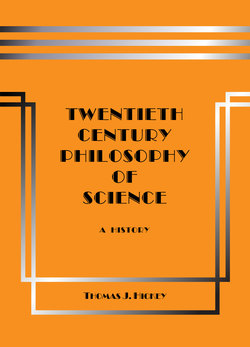Читать книгу Twentieth-Century Philosophy of Science: A History (Third Edition) - Thomas J. Hickey - Страница 22
На сайте Литреса книга снята с продажи.
Explanation:
ОглавлениеPositivists and specifically Carl Hempel advocate the “covering-law” schema for explanation.
According to Hempel’s “covering-law” thesis of explanation, statements predicting observable individual events are derived deductively from observation-language statements describing observable individual events together with “covering”, i.e., universal empirical laws.
This concept of explanation has also been called the “deductive-nomological model”.
Positivists also maintained that theories explain laws, when the theories are premises from which the empirical laws are deductively derived as theorems by the mediation of “correspondence rules”, also called “bridge principles”. Correspondence rules are sentences that relate the theoretical terms in a theory to the observation terms in the derived empirical laws.
